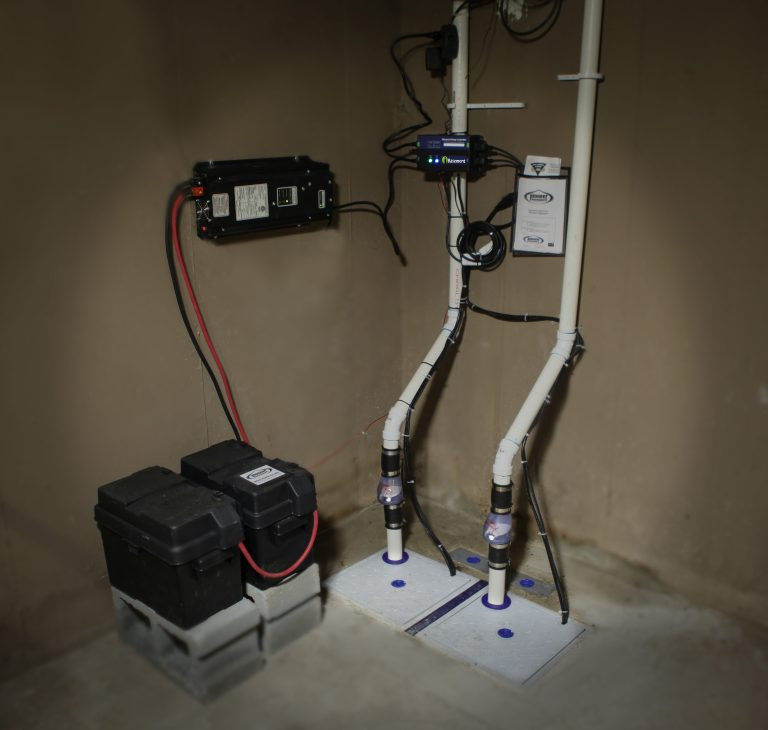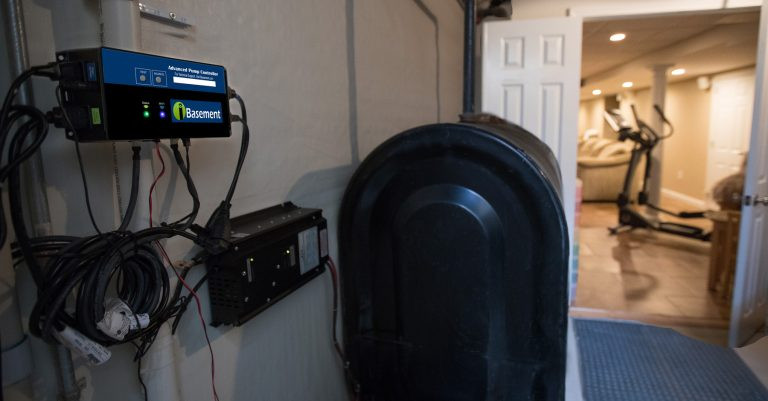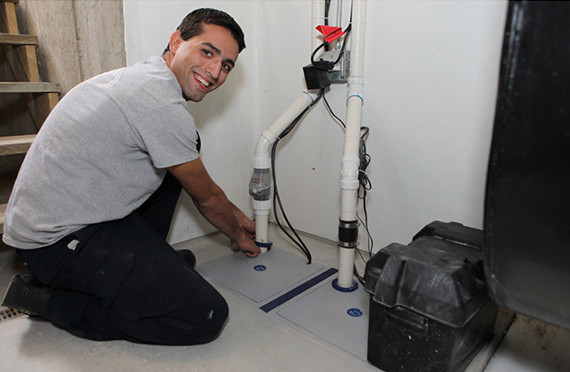When it comes to safeguarding your home against water damage, you’ve probably considered installing a sump pump. But the question arises, should you go for the battery backup option that promises reliability during power outages, or the automatic variant that guarantees ease of use with its hands-off operation? Both have their advantages and drawbacks, and your choice hinges on your specific needs and circumstances. So, how do you make this critical decision? Let’s explore further to help you make an informed choice.
Key Takeaways
- Consider a battery backup sump pump for homes prone to power outages, as they ensure continuous operation during such periods.
- Automatic sump pumps provide convenience with self-activation upon water level rise, eliminating the need for manual monitoring.
- Battery backup systems require regular maintenance and have limited runtime based on the battery’s capacity.
- Automatic sump pumps may have a higher upfront cost and potential for malfunctions due to their additional components.
- Evaluate your home needs, budget, and power stability before choosing between a battery backup or an automatic sump pump.
Understanding Sump Pumps Basics
Your home’s foundation plays an essential role in its overall stability, and a sump pump is a key player in maintaining that foundation. This handy device helps prevent water accumulation that could lead to costly repairs or even structural damage.
Not sure how it works? Let’s simplify it for you.
 A sump pump sits in a pit, usually in your basement or crawlspace. When water flows into the pit, the pump activates and pushes the water out of your home through a discharge pipe. It’s like a vigilant guard, constantly on the lookout for any water that dares to infiltrate your home’s fortress.
A sump pump sits in a pit, usually in your basement or crawlspace. When water flows into the pit, the pump activates and pushes the water out of your home through a discharge pipe. It’s like a vigilant guard, constantly on the lookout for any water that dares to infiltrate your home’s fortress.
Choosing the right sump pump is key. You’ve got two main types: submersible and pedestal.
A submersible pump is more expensive, but it’s quieter and lasts longer. A pedestal pump, on the other hand, is cheaper and easier to repair, but it’s louder and not as durable.
Your choice depends on your home’s needs and your budget. Remember, a sump pump is an investment in your home’s health. Choose wisely.
Battery Backup Sump Pumps Explained
Power outages are your sump pump’s worst nightmare. When the electricity goes out, a regular sump pump stops working, leaving your basement vulnerable to flooding. This is where a battery backup sump pump comes into play.
A battery backup sump pump is your insurance policy against water damage during power outages. It’s designed to kick in automatically when your primary sump pump fails due to power loss or mechanical issues. It runs on a battery, providing you with continued protection against rising water levels.
The battery backup system includes a separate pump, battery, charger, and additional alarm system. When the main sump pump stops, the backup pump starts working, powered by the battery.
It can pump out water for hours, depending on the battery’s capacity, protecting your property until the power returns.
Automatic Sump Pumps: A Deep Dive
Almost every homeowner with a basement can benefit from an automatic sump pump. This device is a real game-changer, especially when you’re dealing with frequent basement flooding. The automatic sump pump kicks into gear the moment it senses any water level rise, springing to action without any manual intervention.
But how does this magic happen? It’s all about the float switch. This clever device monitors the water level in your sump pit. When the water level rises to a certain point, the float switch triggers the pump to start working. It’s that simple.
And when the water level drops back down? The pump turns itself off. It’s like having your own personal water level watchdog.
Automatic sump pumps are also a low-maintenance option. Once installed, you don’t have to worry about manually turning them on or off. They’re always ready to protect your basement from water damage.
Plus, they come in different types and sizes to suit your specific needs.
Pros and Cons of Battery Backup
Contemplating a battery backup for your sump pump comes with its own set of advantages and disadvantages.
On one hand, you’ve got a system that can cover you during power outages. This is, perhaps, the biggest draw of battery backup systems. They kick in when your primary power source fails, guaranteeing your pump keeps working and your basement stays dry.
But, there’s a flipside. Battery backups aren’t a one-and-done solution. They require regular maintenance to make sure they’re ready when you need them. Plus, they’ve a limited runtime. Once the battery depletes, you’re back to square one.
To sum it up, here’s a snapshot of what you’re dealing with:
- Battery backups provide power during blackouts.
- They require routine maintenance.
- They offer limited runtime.
- Once the battery dies, your pump stops working.
In the end, the decision is yours. You’ll need to weigh your specific circumstances, the likelihood of power outages in your area, and whether you’re comfortable with the maintenance requirements.
It’s about finding the balance between reliability, convenience, and your own peace of mind.
Pros and Cons of Automatic Options
Shifting gears, let’s explore another aspect of sump pump selection: automatic options. You’ll find automatic sump pumps a popular choice, and they’ve got their reasons to shine. The most obvious perk is the automation itself. These units kick into action when they sense water levels rising, meaning you won’t have to monitor and manually turn them on. That’s convenience you can count on!
But it’s not all sunshine and rainbows. There are some potential drawbacks. Automatic sump pumps often cost more upfront than their manual counterparts. And while the automation is handy, it’s also another component that could break down or malfunction.
Also, automatic sump pumps typically require a constant power supply. Unlike battery backup options, an automatic pump won’t keep working during a power outage unless it’s paired with a separate backup power source.
Ultimately, your choice between a battery backup or automatic sump pump depends on your home’s needs and potential power issues. If you prioritize continuity during power outages, a battery backup is ideal but remember it requires maintenance. If convenience is key, an automatic pump is great, but it comes with a higher cost and needs constant power. Evaluate your needs carefully and make an informed decision that best suits you.





